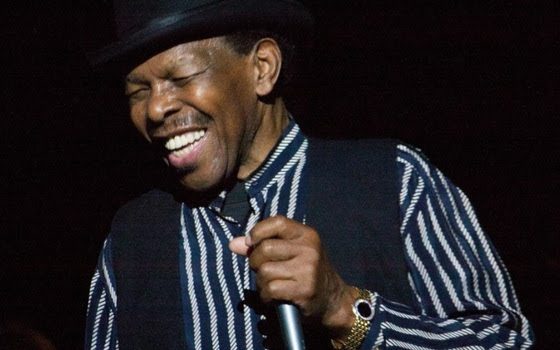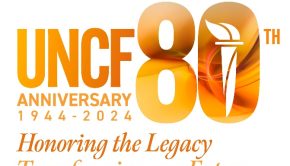R&B Pioneer Lloyd Price On His 2017 Album “This Is Rock And Roll,” Learning From Don King, And His Success Beyond Music
One of the pioneers of both R&B and rock music, Lloyd Price had one of 1953’s top songs with “Lawdy Miss Clawdy.” More hits would follow for the New Orleans native like “Stagger Lee,” “Personality” and “I’m Gonna Get Married,” ultimately leading to 15 Top 10 R&B hits. Covered by hundreds of notable musicians, Lloyd Price is definitely the only artist to have been covered by The Beatles, Elvis Presley, Frank Sinatra, The Grateful Dead, James Brown, Jimi Hendrix, Fleetwood Mac and U2’s Bono. Unsurprisingly, Price was inducted into the Rock & Roll Hall Of Fame nearly 20 years ago in 1998.
Success for Lloyd Price has gone well beyond his recordings. He founded his first record label, KRC, alongside partners Harold Logan and Bill Boskent. Another record label, Double L Records, would release Wilson Pickett’s debut album. Price was one of the first black Americans to own and operate a nightclub, New York City’s Turnable, as located at 52nd and Broadway. With Don King, Price co-produced two of Muhammed Ali’s most famous fights, the “Rumble In The Jungle” against George Foreman and the “Thrilla In Manila” against Joe Frazier. He also founded Icon Food Brands, leading to Walmart selling sweet potato cookies in its stores, as based one of his father’s recipes. Price was one of the stars of the 4 Kings Of Rhythm And Blues special for PBS and has authored two autobiographies.
Lloyd Price continues to perform, and This Is Rock And Roll is his latest full-length album. On behalf of The Hype Magazine, I had the pleasure of speaking with Mr. Price — now based in Westchester, New York — by phone. More of the legendary singer and songwriter can be found online at www.lawdymissclawdy.com.
Where did the idea come from to make a new album?
Lloyd Price: I was at The Cutting Room, here in the city. The crowd was so enthusiastic about what the show was, I said, “Maybe I should do this again”… Along with a guy called Ron Jones in New Orleans, he had sent me a few demos where he upgraded “I’m Walkin'” by Fats Domino and “Blueberry Hill.” I could take these and arrange them so they sound like they’re new music. I worked on the album for two years. I recorded 27 tunes to get 10. I wanted to make sure that each song had the flavor of rock & roll as we knew it in the past, yet contemporary instrumental hits that people would recognize… They’re all very well-thought out.
You recorded most of it in New Jersey? Or Westchester?
Lloyd Price: At City Lights, down in Freehold, New Jersey. But we also did work in Nashville, Atlanta, in Sugar Hill Studios. We felt certain songs needed different kinds of vibes. We’re talking about the mix and the engineers who did it. I think we used 125 people to do this project.
I can’t imagine that was easy to put everything together, but when you started on the project, was it going to all be done in one studio? Or did it evolve to something bigger?
Lloyd Price: Each time I recorded something I thought about what and where would be the next place to do it. Different engineers and different studios have a different kind of motivation and quality in terms of how they feel, and how you feel about the room. It’s almost like getting conditions for a fight. If you don’t feel it, nobody else is gonna feel it, because all we’re projecting is sound. I tried to be as comfortable as possible with the mix and the vocals of where I recorded it and the way I did it.
So how did you become a Westchester guy?
Lloyd Price: I got married again. (laughs) I married one of my best friends, we had been friends for over 20 years and had decided to get married. I’ve been in Westchester now for 22 years.
She’s originally from Westchester?
Lloyd Price: She’s originally from Maryland, Baltimore, but she lived in New Work. Jacqueline.
At what point did you first leave Louisiana?
Lloyd Price: Oh, right after “Lawdy Miss Clawdy,” I was a teenager. Probably 19 years old.
When was your first time in New York?
Lloyd Price: When I was 19 years old, at the Apollo Theater. It must have been 1953.
Coming from Louisiana to New York in that era, were you originally intimidated by New York?
Lloyd Price: Oh, I couldn’t tell you. It was a very frightened, emotional thing. You’ve got to imagine a guy raised up in the country, coming to New York City. It was absolutely an experience I never will forget. Our language, coming from Louisiana where you speak in patois, it’s almost like coming from Haiti today. Trying to get along in New York City, the tone and the language was so different. It ain’t that way today with Louisiana, everybody kind of speaks American. But back then, there was languages, South Carolina didn’t sound like North Carolina, and Louisiana and Florida didn’t sound like Alabama and Mississippi. It was completely different among black people.
Being that it was so completely different, what inspired you to move out of Louisiana?
Lloyd Price: I guess because “Lawdy Miss Clawdy” had no language barrier, the white kids, the black kids, blue, purple, they all loved “Lawdy Miss Clawdy.” It was kind of like the beginning of rock & roll. The artists after me, I think the first one was Elvis three years after me who recorded “Lawdy Miss Clawdy”… The Beatles, Paul McCartney, Fats Domino, John Lennon, U2, Neil Diamond, James Brown, Wilson Pickett, over and over and over again, they recorded my music. I kind of thought when I did “Personality” in 1959, “maybe I can do this stuff.” (laughs)
Also, The Replacements and a lot of other modern artists have recorded that song, which is kept it alive.
Lloyd Price: Oh yeah, The Who… “Stagger Lee” has been recorded 429 times after I did it.
When somebody is a pioneer in their genre and they have such huge success early on, at a certain point that’s what you’re most known for. At what point did you start to embrace the fact that you were a pioneer instead of trying to create the latest and greatest?
Lloyd Price: I believe it was in 1960, at the BMI Awards dinner, every name they called was my name or Phil Spector’s name. Then I realized, what am I going to do with all these awards? Motown was on the rise, then Memphis was beginning to kick in. I started feeling all this stuff behind me. Four years later, I started looking for somewhere to park the band. I knew Don King out of Cleveland. He had a club where I could park my band, The Corner Tavern. It was just as good as The Copa Cabana… We had started to integrate Cleveland, they would come to the club. Then in 1967, when Morris Levy gave up Birdland, I realized I could be the first big black rock & roll club on Broadway. I took the lease and built The Turntable and parked my band there for four years.
It wasn’t really that difficult because my crowds dropped from 5,000 to 3,000. I always paid attention.I had a good guy with me, Harold Logan, he’s on most of my songs. I made him my partner, he was a numbers guy from West Virginia. He was the administrator for my company. We kept noticing how things would reduce itself where we would draw 1,700 at the Apollo, then we started doing 1,200 or 1,300. When you notice that drop, you can keep up with it. (laughs) That’s the way I did it.
You mentioned Harold as a business partner, but you have been a successful businessman outside of music in real estate and the food market. Where did your business sense come from?
Lloyd Price: Believe it or not, these guys who were in the numbers business — Don King and there was another guy called Scatterbrain, Harold Logan — I was a junior and they would say, “You don’t want to go that way. You want to go this way.” They didn’t have any Ph.D’s, which I now have honorary, but there were guys that I listened to, my mentors, smart guys. To prove how smart they were, if you equate lotto to how it is now… These guys knew what they were doing. They bought all the houses, had the garages. They had common sense. There were no colleges when they built this universe… With common sense, you can put the common denominator together. A 10 by 10 room needs certain foundation, and if you go up, you double it, and that’s what I did.
Where did Icon Food Brands come from?
Lloyd Price: Because there was a need for it. I would go into these stores and I wouldn’t see any black products on the shelves at Walmart, Target… The Chamber Of Commerce in Washington would write about it all the time and I would read… Black folks spend $670 million a month at Walmart and they’re not paying attention to that. I went down to Bentonville and met with Walmart, and they asked me, “What do you have that can go on our shelves? We have 68,000 vendors, what do you have that we don’t have?” I told them, “A sweet potato cookie.” (laughs) In five minutes they ordered it. I really had to start putting it together. I knew how to do it, but I had to get a company to make that product for me. I found a company in Clear Lake, Iowa.
Do you have a favorite of the Lawdy Miss Clawdy food products?
Lloyd Price: Yeah, the sweet potato cookies. My father used to make them. It was a triangle, he used to put the sweet potato in the middle of it, and that was one of the greatest things I’d ever taste. I said, “Well maybe I can take that in particular and make a cookie.” I came up with a formula for a sweet potato cookie. Instead of sweet potato, we used sweet potato chips, because of shelflife. That is one thing I hadn’t considered, but we got the shelflife of the cookie to last more than 90 days. Walmart was able to put it on the shelf alongside Mrs. Fields Cookies, and we outsold Mrs. Fields Cookies. We had 12 in a bag, she had 16 or 18. My cookie was one-ounce individually-wrapped and lasted 90 days. I was quite happy. We were in Walmart for years until they wanted to reduce the price and put more cookies in a bag and reduce the size, and I had not agreed to do that. We’re not in Walmart at the moment.
Do you have any entrepreneurial efforts in the works besides your food products?
Lloyd Price: Actually, what I wanted to do is going back into the music business, even though it’s as tough as driving a nail through a piece of steel these days. I looked at it very carefully. Most of my compadres are gone, I’m probably the last man standing on the runway that can do it all. With the big band, I can do the rock & roll, I can do the ballads. That is one of the reasons why I did This Is Rock And Roll. I can do all the universities. I know my history pretty good, I can even go to colleges and talk. I said I’ll reintroduce myself and call it what I do. This is my brand, rock and roll, and I can talk about that for 60 years of how it all happened. I knew all the players, I was a leader most of my life, including Motown, Al Bell, they would all come to me for information at one time at another about the record business and publishing… Besides Don Robey at Peacock down in Texas, I was the next largest black publishing business in America in the 1960s.
Is there an accomplishment that you are still working towards?
Lloyd Price: I can’t think of doing nothing else better than my music. Every day is an accomplishment. Talking to you is an accomplishment, because every day I ask myself, “Which one of god’s blessings can you deny?” You can’t deny any of the good or the bad, so I just keep keep going.
So in closing, Lloyd, any last words for the kids?
Lloyd Price: Yes, you’ve gotta ask yourself a few questions. Do not feel bad if someone tells you that you made a mistake, because you cannot rush the experience. If you’ve never done something before, it’s not a mistake. Every day you wake up, you learn something new. I would say that if you’ve got a craft you love, keep doing it, because nobody knows what’s inside your head but you.
Tweet








































